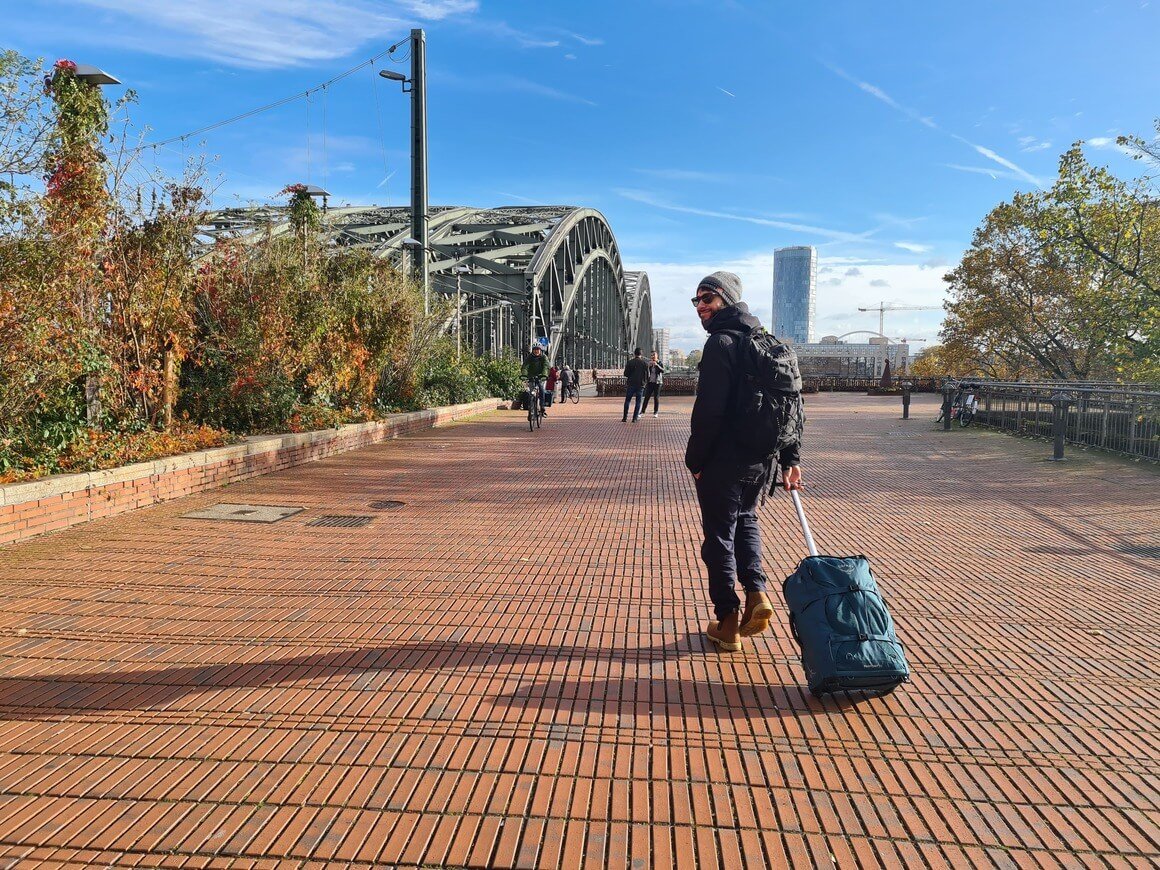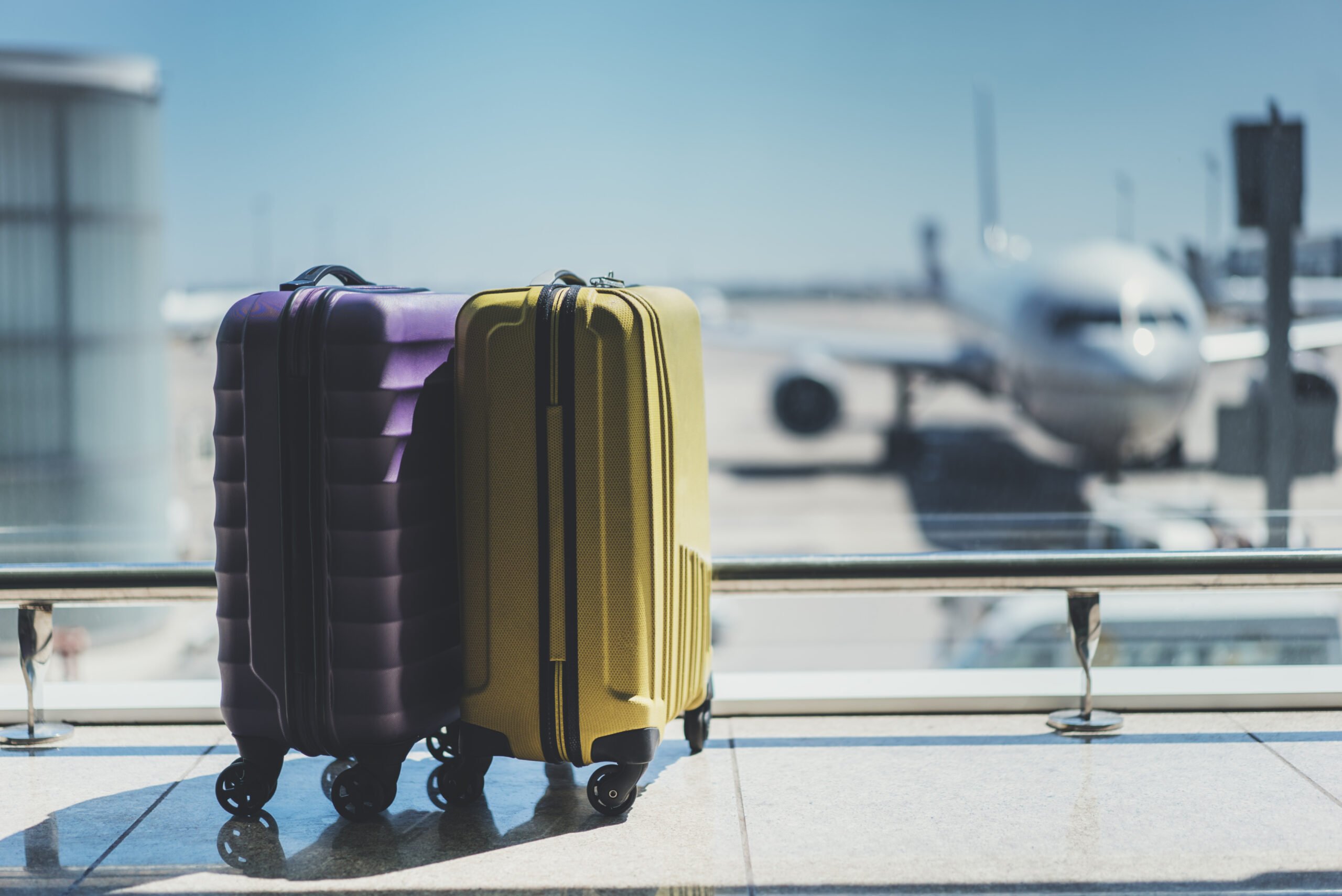It often feels like travellers these days are being squeezed every which way at every possible opportunity. We all know about airlines increasingly charging for check in bags, that cabin leg room seems to be getting shorter and shorter with each flight, and I sometimes even wonder that if (God forbid) I should ever need to use the emergency Oxygen mask, I will find that I need to put £1 in to it before it actually delivers any O2!
As for hotels, Airbnb’s (and even hostels), check in times are getting later and later, while check out times are getting earlier and earlier. When I first started travelling, it wasn’t unheard of to enjoy 12pm check in and then 11 am check out. These days however, it’s normal to have to wait until 3pm before they let in and then they have the nerve to kick you out at 10am the next day, before the morning coffee has even properly kicked in!
This often leaves modern travellers having to traipse around cities with 20kg of luggage under arm, or strapped to a 65L backpack. This sucks and it can truly dent the travel experience making the first and less day of a trip into a stay in purgatory.
In this post though, we will explore a few options for dealing with this.

The Evolving Landscape of Hotel Timings
Firstly, let’s look at why this is happening…
The hospitality industry is witnessing a sizable shift in hotel check-in and check-out timings, often leaning towards later check-ins and earlier check-outs. This is happening all across the sector, all over the world. Bah bloody humbug.
This most annoying trend is partially driven by a post-pandemic increased focus on hygiene and cleanliness. But in reality it is mostly due to hotels employing less cleaning staff or in some cases, delaying standard check in so they can offer ‘premium check in for a fee”- its profit over service and don’t ever let them tell you otherwise.
Furthermore it is also becoming less common for hotels to allow guests to leave bags pre or post check in. Whereas once upon a time, the luggage room came as standard, that is no longer the case and if there is one, you may well be charged by the hour to use it.
The reasons for this range from hotels having less space, a spike in instances of luggage theft, criminals using luggage storage as a ruse to hide and exchange contrabands, and of course the ever present threat of terrorism.
Traditional Luggage Storage Options

Traditional luggage storage options, such as lockers at train stations or airports, have long been a go-to solution.
These facilities offer a place to stow bags temporarily, but they come with their own set of pros and cons. While they provide a certain level of security and are relatively accessible, issues like size limitations, high-costs, and limited availability can pose significant inconveniences.
Location is also a factor too. Storing your luggage at the airport is all good and well as long as you plan on hanging around the airport but bearing in mind most airports are a good 20km away from anything remotely interesting, this is not an optimal option if you want to kill time and explore the city on the day of your flight.

Stop stressing about your phone service when you travel abroad.
Holafly is a digital SIM card that works smoothly like an app — you simply pick your plan, download it, and voilà!
Roam around Europe, but leave the roaming charges for the n00bies.
Get Yours Today!Innovative Luggage Storage Solutions
In recent years, innovative luggage storage solutions have emerged, kind of revolutionising the way travellers can handle their baggage during layovers, late check ins or city explorations.
Companies like Nannybag exemplify this new wave of convenience, offering a secure and flexible alternative. These modern, app based services often partner with local businesses, such as hotels, shops, or cafes, taking their available space and turning them into convenient, accessible centrally located temporary storage points.
Other luggage storage companies have even rented out premises in city centre locations which are basically rooms full of lockers (they kind of feel like laundromats to me). Lockers are generally available in a number of different sizes and are priced accordingly.
Coming back to Nannybag as an example, they now operate in numerous cities worldwide, providing travellers with a network of vetted locations where they can safely store their luggage for hours or even days. I recently used Nannybag luggage storage London when I found I had 8 hours between check out (kick out..) and my train back home and it really allowed me the freedom to make the most of my last hours in London.
This model not only benefits travellers by offering a practical solution to their luggage woes, but it also supports local businesses by offering them an additional income stream and increasing foot traffic.
How To Use Luggage Storage Facilities
The process is generally very straightforward: travellers book a storage spot through the company’s app or website, drop off their luggage at the chosen location, and enjoy their time unencumbered by heavy bags. Lockers are usually operated via QR code or a pin code both of which are provided via the app.
These highly helpful, innovative services typically offer insurance for stored items, adding that extra layer of security and peace of mind for travellers. Moreover, they often boast far more competitive pricing and greater flexibility than traditional storage options, making them an attractive choice for budget-conscious and convenience-seeking travellers alike.
Final Thoughts
This most welcome and long overdue evolution in luggage storage not only alleviates the stress of managing baggage during travel but also enriches the overall travel experience, allowing for more freedom and ease in exploration.
Have any of you used a luggage storage service? Which one was it and where? Would you recommend it? Let us know in the comments below!
See you on the road guys.

And for transparency’s sake, please know that some of the links in our content are affiliate links. That means that if you book your accommodation, buy your gear, or sort your insurance through our link, we earn a small commission (at no extra cost to you). That said, we only link to the gear we trust and never recommend services we don’t believe are up to scratch. Again, thank you!





